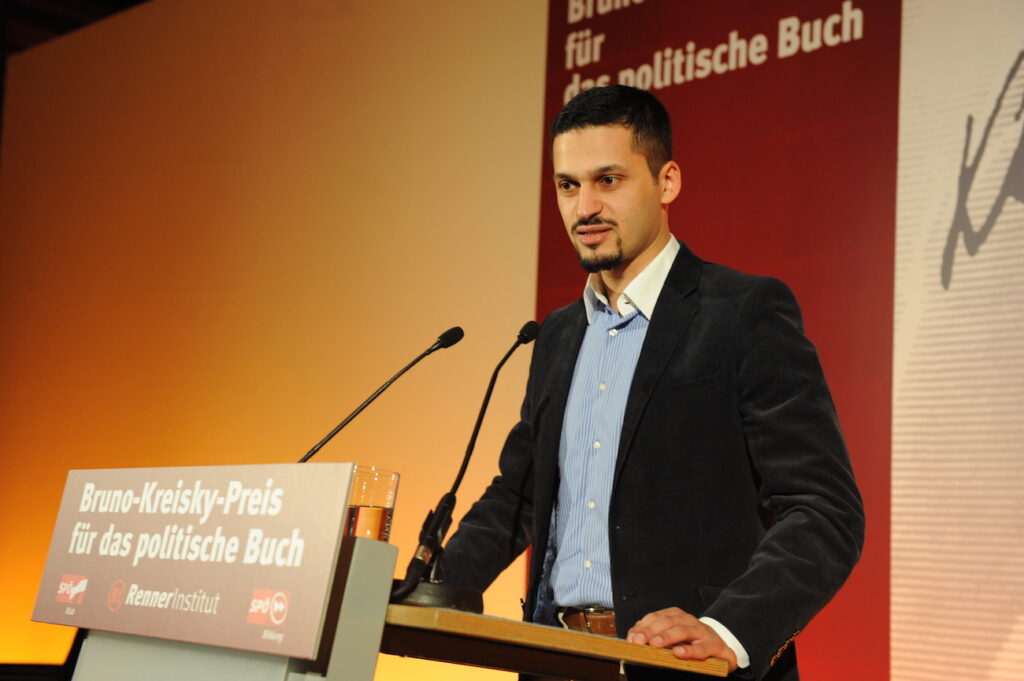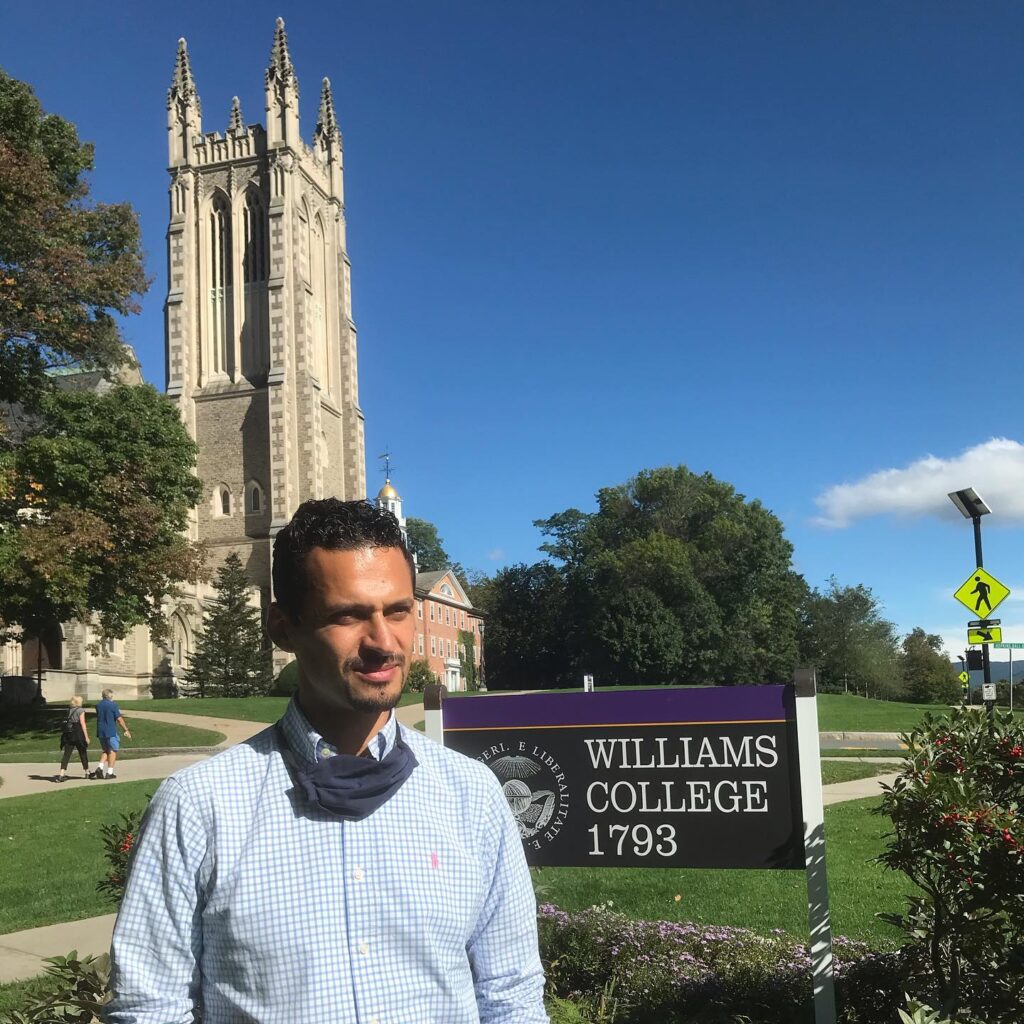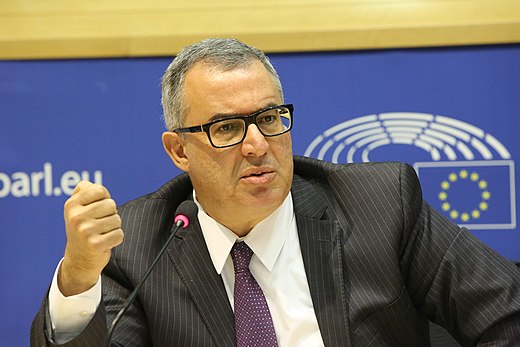According to its website, two prominent US academics are part of an organization supporting Farid Hafez, a prominent Austrian Islamophobia researcher who was one of the targets of Austrian police raids involving a large number of Islamic organizations and individuals suspected of ties to terrorist and criminal organizations. According to the website of the Unterstützungskomitee Farid Hafez (Support Committee Farid Hafez):
We, the Support Committee for Farid Hafez, are dismayed by what has happened in connection with the raid on November 9, 2020. We know and appreciate the work of Farid Hafez, a political scientist with a post-doctoral degree from the University of Salzburg and a researcher at Georgetown University in Washington, D.C., who has distinguished himself in particular in connection with research on racism, Islamophobia and Muslims in Austria, thereby achieving international prominence. Farid Hafez and his family have not only been subjected to a traumatic experience, Hafez has also been subjected to media prejudice that threatens to damage his academic reputation in particular. We also see in the raid an attempt at intimidation against a recognized scientist who has already twice had the accusations now again made against him thrown out by the courts, and both times won the cases in the second instance. Freedom of science and freedom of opinion are valuable assets that must be protected.
Read the rest here.
The Committee website identifies seventeen individuals as Supporters of Hafez. Two of these individuals are US academics with a long history of support for the Muslim Brotherhood. Dr. John Esposito is a professor of International Affairs and Islamic Studies at Georgetown University and founding director of the Prince Alwaleed Bin Talal Center for Muslim-Christian Understanding (CMCU) at Georgetown. Esposito, a former US State Department advisor, has espoused views consistent with Brotherhood doctrine and during the 1990s was known for his claims that Islamic fundamentalism was, in fact, democratic and posed no threat to the US. Dr. Esposito has at least a dozen past or present affiliations with global Muslim Brotherhood/Hamas organizations, including having served on the advisory board of the Institute of Islamic Political Thought in the UK headed by Azzam Tamimi, a leader in the UK Muslim Brotherhood and often described as a Hamas spokesman. The IPT board also included Global Muslim Brotherhood leader Youssef Qaradawi as well as other individuals tied to the Muslim Brotherhood. Dr. Esposito has also served with Qaradawi on the Steering Committee of the Circle of Tradition and Progress and enjoyed a close relationship with the United Association For Studies and Research, part of the US Muslim Brotherhood’s Palestine Committee and Hamas support infrastructure. In 2005, Saudi prince Alaweed bin Talal, a financial supporter of the global Muslim Brotherhood, donated $20 million to the CMCU, then headed by Dr. Esposito.
The Committee website also identifies Tamara Sonn as another Hafez supporter. Sonn is the Qatari-funded Hamad Bin Khalifa Al-Thani Professor in the History of Islam and current Director of the CMCU. Both Sonn and Esposito have been important leaders in the Center for the Study of Islam and Democracy (CSID), a little known organization founded in 1998 in what appears to have been a cooperative effort among the US Muslim Brotherhood, the US State Department, and Esposito. Past CSID board members included Jamal Barzinji and Taha Al-Alwani, both important leaders in the US Muslim Brotherhood who helped to establish many of the most important US Brotherhood organizations. Antony Sullivan, the current CSID Vice-Chair, has had many ties to US Brotherhood groups, including the United Association for Studies and Research, and the Circle of Tradition and Progress, both discussed above. From its inception, CSID has argued that the US government should support Islamist movements in foreign countries, has taken positions largely consistent with those of the Global Muslim Brotherhood, and has enjoyed frequent and deep ties with other US Muslim Brotherhood groups. CSID has received financial support from the US State Department, the National Endowment for Democracy, and the United States Institute of Peace, and unpublished research suggests that the organization was involved in covert US funding of the Syrian Muslim Brotherhood
Farid Hafez is a founding member of the Muslimische Jugend Österreich, an Austrian Muslim youth organization known to have been a member of the Forum of European Muslim Youth and Student Organizations, the youth/ student Global Muslim Brotherhood in Europe. Hafez is also a senior researcher at the Georgetown University’s Bridge Initiative, headed by Esposito and whose staff have included multiple individuals tied to US Muslim Brotherhood groups. Hafez also co-edits the annual ‘European Islamophobia Report’ published by the SETA Foundation for Political, Economic, and Social Research, a Turkish think-tank part of the Turkish influence network and closely linked to President Turkish Erdoğan. in January 2019, Hafez participated in a high-level conference that included leading figures of the European Muslim Brotherhood and organized by Diyanet, the Turkish state institution responsible for managing religious affairs. In November, the GIOR reported that Hafez was a key suspect in Austrian police raids targeting a large number of Islamic organizations and individuals suspected of ties to the Muslim Brotherhood and Hamas. Hafez subsequently drew media criticism over an article he wrote saying the raids undermined the credibility of Austrian efforts to commemorate the 1938 Reichskristallnacht pogroms and stating the country was on a “dangerous path towards repeating history.” Hafez also said the crackdown reminded him of China’s suppression of Uighur Muslims in the Xinjiang region. Earlier this month, the GIOR reported on an interview in which Hafez denied any ties to Islamism and the Muslim Brotherhood.












